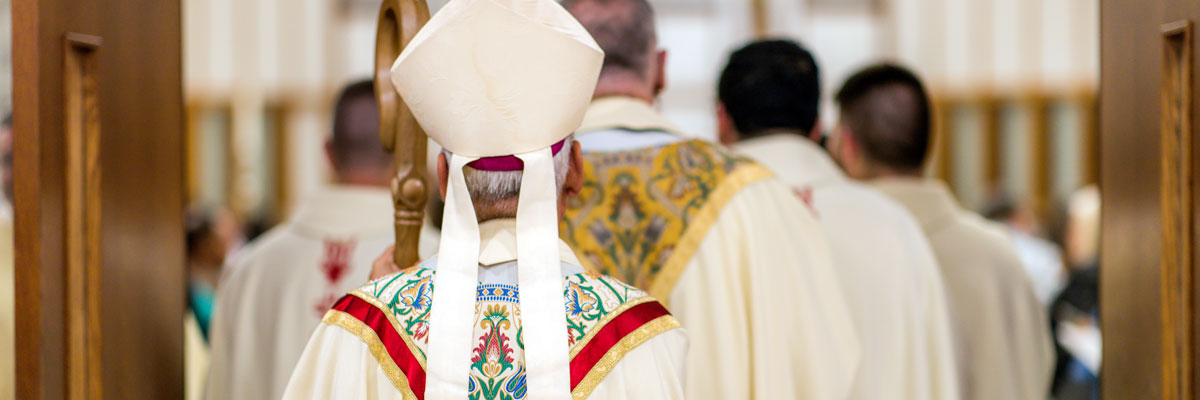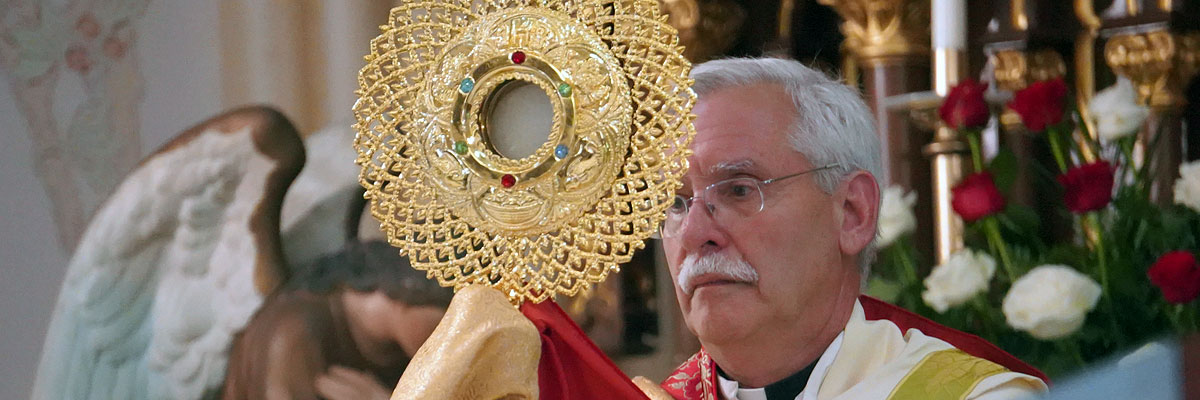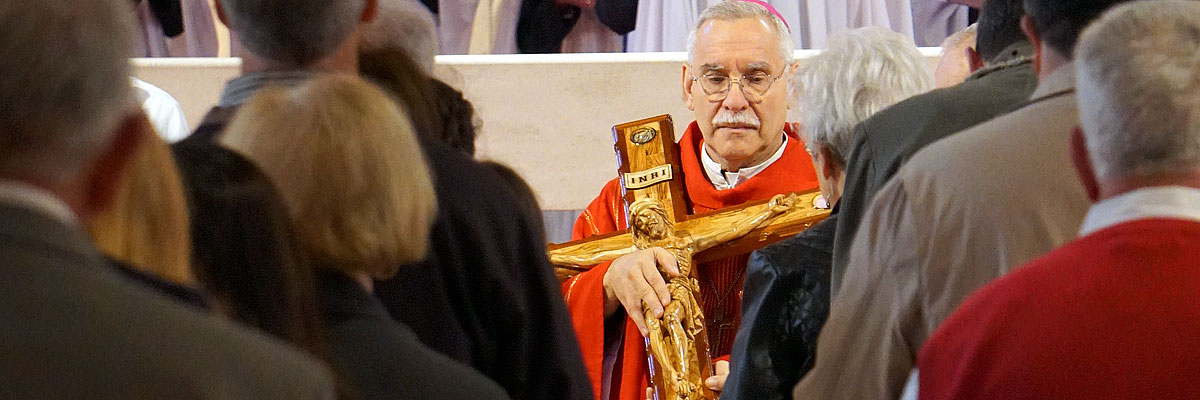Official Website of the
Catholic Diocese of Little Rock
Apostolic succession ensures faith is handed on from Christ himself
Published: February 9, 2008
By Charles T. Sullivan
“One, holy, catholic, apostolic ...” We recite these words every Sunday during the profession of our faith. They are words describing certain inherent characteristics that “mark” the true Church.
To say that the one, true Church is apostolic is to assert that it is founded upon the Apostles. This is true in three ways:
The Church was and remains built on the foundation of the Apostles, the witnesses chosen and sent by Christ himself.
The Church keeps and hands on the teaching, the “good deposit” she has heard from the Apostles.
The Church continues to be taught, sanctified and guided by the Apostles until Christ’s return, through their successors in pastoral office: the college of bishops.
A cornerstone of Catholic theology is the doctrine of apostolic succession. As Jesus himself had been sent by the Father, so did he send his Apostles to go and “... make disciples of all the nations, baptizing them in the name of the Father, and of the Son, and of the Holy Spirit.” (Matthew 28:19)
Implicit in this mandate is Jesus’ will that the successors to the Apostles, the bishops, should be shepherds in his Church until the end of the world. Thus, the saving mission of Jesus, given by the Father, is perpetuated throughout history by those who have received the apostolic office:
“The Church teaches that the bishops have, by divine institution, taken the place of the Apostles as pastors of the Church, in such a way that whoever listens to them is listening to Christ.” (Lumen Gentium, 20)
It is clear the Church, emboldened at Pentecost, was “apostolic” in its makeup. As the Church began to grow, the Apostles (guided by the Holy Spirit) recognized the need to choose and ordain successors.
New Testament evidence is overwhelming that the Apostles had the power and the authority to pass on to others what they had received from Christ. There are many references to the appointment of bishops by the Apostles.
From the beginning, the Church looked to the idea of a “living apostolic tradition,” guaranteed by apostolic succession, in times of question, doubt and error. A classic example is provided by St. Irenaeus (130-202 A.D.), a bishop of Lyons in southern France, who turned to the apostolic tradition of the Church and the authority of the office of bishop to refute false teachings by the Gnostics.
The succession of the bishops in an unbroken line throughout history links today’s Church directly to the Apostles and to Christ. The Second Vatican Council promulgated two dogmatic constitutions: Dei Verbum (Revelation) and Lumen Gentium (the Church). The most important doctrinal achievements of Lumen Gentium deal primarily with the role of the bishops who collectively form a body or “college” which is responsible for the tasks of the entire Church. Additionally, the council’s Christus Dominus (Decree on the Bishops’ Pastoral Office in the Church) explained in even greater detail the bishops’ self-understanding of their calling:
“Bishops have been appointed by the Holy Spirit, and are successors to the Apostles as pastors of souls. Together with the supreme pontiff and under his authority, they have been sent to continue throughout the ages the work of Christ, the eternal pastor.” (Christus Dominus, 2)
Charles T. Sullivan, a former member of St. Bernard Church in Bella Vista, has a master’s degree in theology from the University of Dallas. He attends St. Mary Church in Joplin, Mo.








